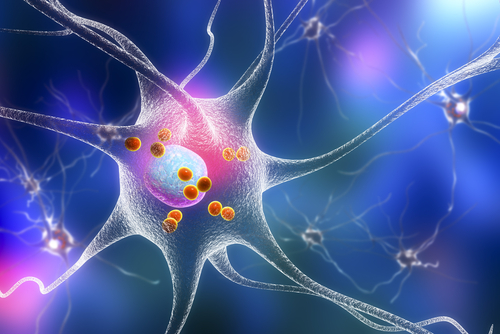Vaccine Decreases Tau Tangles, Improves Memory and Motor Function in Mouse Model of Alzheimer’s, Study Says

An experimental vaccine targeting the toxic form of tau protein reduced cellular tangles in the brain — a hallmark of Alzheimer’s — and eased behavioral and motor defects in a mouse model of the disease, a study showed.
By generating high levels of anti-tau antibodies, this vaccine may slow disease course and could advance to clinical trials, the scientists said.
The study, “A MultiTEP platform-based epitope vaccine targeting the phosphatase activating domain (PAD) of tau: therapeutic efficacy in PS19 mice,” was published in the journal Nature.
Alzheimer’s is characterized by the formation of amyloid plaques and tau tangles in the brain, which disrupt communication between nerve cells and cause their death.
Research efforts to develop treatments have mainly focused on amyloid plaques, with clinical trials showing only limited success. However, tau tangles, or neurofibrillary tangles, are more strongly correlated with disease progression and have become a promising therapeutic target.
As supported by studies in animal models, a successful vaccine that targets tau would generate antibodies that can block the formation of tangles to stop or prevent Alzheimer’s progression. The challenge in developing such a vaccine would be to eliminate the toxic form of tau while leaving normal tau untouched.
Researchers at The Institute for Molecular Medicine (IMM), in partnership with Capo Therapeutics, created a vaccine that binds to a segment of the protein that is accessible in tau tangles but hidden in normal tau. This segment is called the phosphatase activation domain (PAD).
To create this vaccine candidate, called AV-1980R, three PAD segments were fused and linked to an additional segment — named MultiTEP — that directed the immune system to generate high amounts of antibodies while preventing immune T-cells from driving harmful responses targeting the body’s own cells and tissues.
The vaccine was tested in a mouse model of Alzheimer’s, which was characterized by the development of tau tangles, as well as movement, memory, and behavior problems after the age of six months.
Animals received intramuscular injections of AV-1980R plus an adjuvant (AV-1980R/A) — a secondary substance that boosts immune response — on four occasions over the course of 6.5 months.
Antibodies were isolated from blood three times over seven months. Then, the mice underwent behavioral and movement tests, and their brains were analyzed at nine months of treatment.
Results showed high amounts of anti-tau antibodies after two doses of the vaccine. These antibodies specifically bound to toxic tau from human brain tissue samples isolated from Alzheimer’s patients.
“For a vaccine to be effective, it has to induce therapeutically potent levels of antibodies which our anti-Tau vaccine achieved,” Armine Hovakimyan, a professor at IMM and the study’s lead author, said in a news release.
Mice receiving the vaccine showed significantly improved performances in body control, spatial learning, and memory compared with controls injected with the adjuvant only.
Also, mice taking the vaccine candidate had less insoluble tau with a chemical modification (called phosphorylation) that causes its aggregation. Markers of brain inflammation were also reduced with the vaccine in treated mice, compared with the control mice.
“Taken together, these results provide further support for the potential translation of this promising vaccine toward human clinical trials,” the researchers said.
“Our transgenic mice data suggest that vaccination with AV-1980R/A may prevent/slow aggregation of Tau and delay manifestation of [Alzheimer’s],” said Anahit Ghochikyan, PhD, one of the senior authors of the study.
“No other preclinical studies have achieved such levels of effective antibody titers,” added Ghochikyan, also a professor at IMM and co-founder of Capo Therapeutics.






